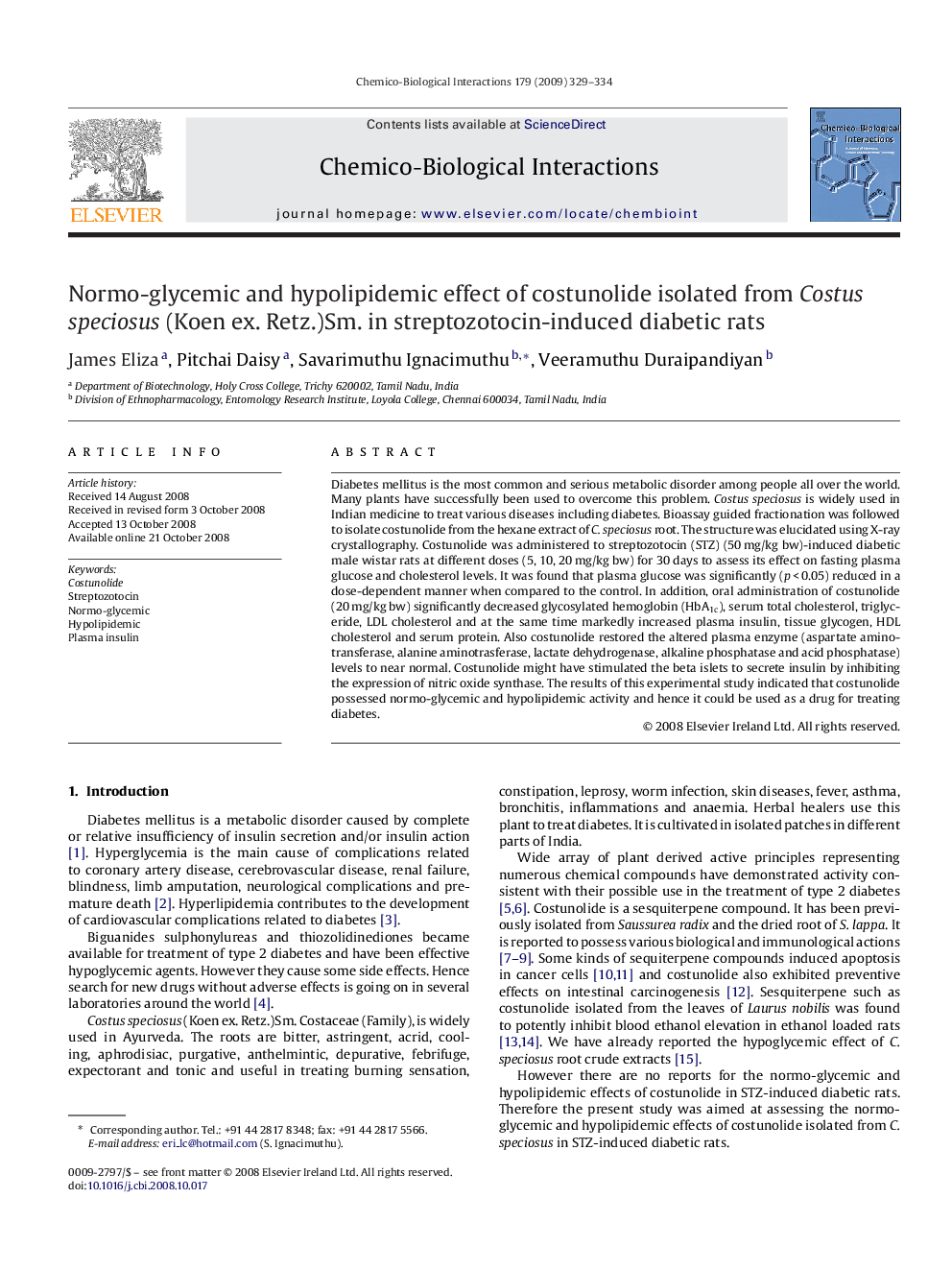| Article ID | Journal | Published Year | Pages | File Type |
|---|---|---|---|---|
| 2582242 | Chemico-Biological Interactions | 2009 | 6 Pages |
Abstract
Diabetes mellitus is the most common and serious metabolic disorder among people all over the world. Many plants have successfully been used to overcome this problem. Costus speciosus is widely used in Indian medicine to treat various diseases including diabetes. Bioassay guided fractionation was followed to isolate costunolide from the hexane extract of C. speciosus root. The structure was elucidated using X-ray crystallography. Costunolide was administered to streptozotocin (STZ) (50 mg/kg bw)-induced diabetic male wistar rats at different doses (5, 10, 20 mg/kg bw) for 30 days to assess its effect on fasting plasma glucose and cholesterol levels. It was found that plasma glucose was significantly (p < 0.05) reduced in a dose-dependent manner when compared to the control. In addition, oral administration of costunolide (20 mg/kg bw) significantly decreased glycosylated hemoglobin (HbA1c), serum total cholesterol, triglyceride, LDL cholesterol and at the same time markedly increased plasma insulin, tissue glycogen, HDL cholesterol and serum protein. Also costunolide restored the altered plasma enzyme (aspartate aminotransferase, alanine aminotrasferase, lactate dehydrogenase, alkaline phosphatase and acid phosphatase) levels to near normal. Costunolide might have stimulated the beta islets to secrete insulin by inhibiting the expression of nitric oxide synthase. The results of this experimental study indicated that costunolide possessed normo-glycemic and hypolipidemic activity and hence it could be used as a drug for treating diabetes.
Related Topics
Life Sciences
Environmental Science
Health, Toxicology and Mutagenesis
Authors
James Eliza, Pitchai Daisy, Savarimuthu Ignacimuthu, Veeramuthu Duraipandiyan,
